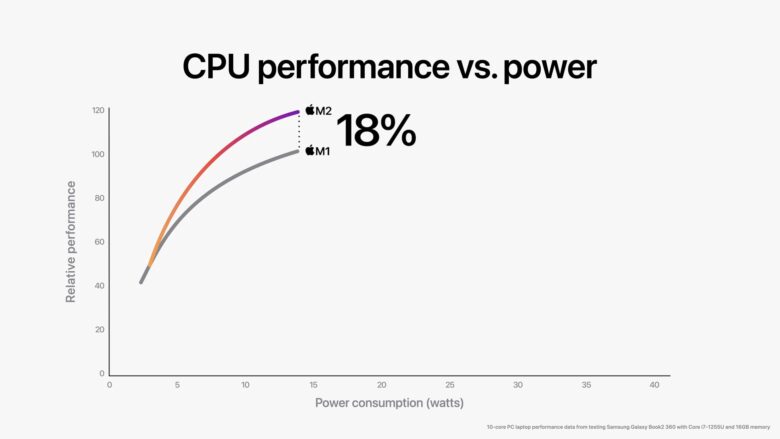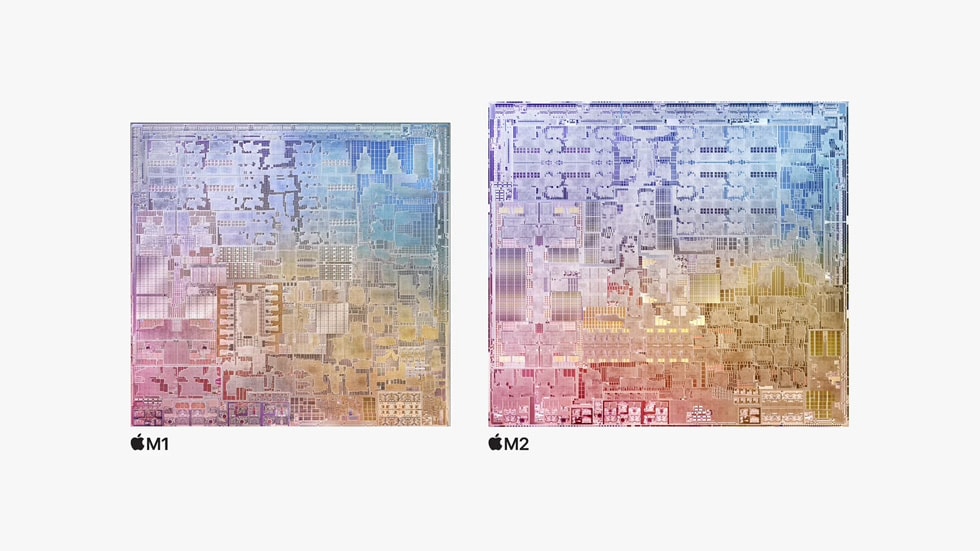The first real-world benchmark tests of Apple’s M2 chip show that the just-launched processor is about 20% faster than the original M1. That’s welcome news for anyone in the market for a MacBook or iPad in the next few years.
But the newest chip does not offer better performance than Apple’s M1 Pro or M1 Max from 2021. That will have to wait for advanced versions of the M2 expected to launch in 2023.
Apple M2 benchmarks show sweet performance boost
Apple developed the M series of processors so it could move away from Intel chips. The M1 debuted in 2020 and brought truly significant performance increases. Faster Macs are better for everyone, especially when they require less power to run.
Then the wraps came off the M2 processor at Apple’s recent developers conference. Apple promised at the WWDC22 debut that the chip was 18% quicker than its predecessor. And now we have real-world proof it’s actually faster than that.

Chart: Apple
Benchmarks of the processor done by Cnet show an 8,954 score on the Geekbench 5 multi-core test. That’s 22% faster than the original M1 on the same test. Engadget did its own Geekbench 5 tests and found the M2 is 25% faster than the original M1.
Both chips have eight CPU cores: four performance and four efficiency. But the M2 has a memory controller that offers 100 GBps of unified memory bandwidth — 50% more than M1. And it’s produced with an enhanced, second-generation 5-nanometer technology that’s more efficient.
M2 vs. M1 Pro and M1 Max
People who don’t know how processors are branded might be surprised to learn that some of the chips in the M1 series are faster than the M2. Actually, most of them are.
The M2 debuted in 2020 and was followed by the M1 Pro and M1 Max in 2021. These are enhanced versions of the earlier chip. The original M1 is for consumer-grade Macs while the Pro and Max are for mobile professionals. They benefit from additional CPU cores and greater memory bandwidth.
The M2 is also for consumer-grade computers like the 2022 MacBook Air, not professionals. It’s not supposed to be Apple’s fastest chip. And it is not – the M1 Pro is 31% quicker than the M2, according to Engadget. The M1 Max offers 41% faster performance.
And the M1 Ultra, released earlier this year, is 160% faster. It’s for desktop users who aren’t concerned about battery life.
But that’s not the end of the story. Apple is reportedly prepping computers with the M2 Pro and M2 Max. These processors will be more-advanced versions of the newest chip and will therefore likely run about 20% faster than the M1 Pro and M1 Max. The same surely goes for an eventual M2 Ultra.
Expect the enhanced M2-series processors in 2023 and 2024.


